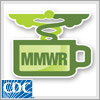A CUP OF HEALTH WITH CDC
Teen Drinking and Driving
Drinking and Driving Among High School Students Aged >16 Years —
United States, 1991-2011
Recorded: October 2, 2012; posted: October 4, 2012
[Announcer] This program is presented by the Centers for Disease Control and Prevention.
[Dr. Gaynes] Welcome to A Cup of Health with CDC, a weekly feature of the MMWR, the Morbidity and Mortality Weekly Report. I’m your host, Dr. Robert Gaynes.
Putting young drivers behind the wheel of a motor vehicle is risky enough without adding alcohol to the equation.
Dr. Ruth Shults is a researcher with CDC’s National Center for Injury Prevention and Control, and she’s joining us today to discuss the dangers of teen drinking and driving. Welcome to the show, Ruth.
[Dr. Shults] Thank you, Bob.
[Dr. Gaynes] Ruth, how many people die each year from drinking and driving among teenagers?
[Dr. Shults] According to the Department of Transportation, more than 800 people died in 2010 in crashes involving a teen who’d been drinking. Many of those who died were the teen driver themselves or the teen driver’s passengers.
[Dr. Gaynes] How common is drinking and driving among teenagers?
[Dr. Shults] Well, the good news is that today’s teenagers are drinking and driving less than their parents did. In fact, the rates of drinking and driving among high school students 16 years and older have been cut in half in the past 20 years. Even with that large reduction, about one in 10 high school students still drinks and drives each month. That works out to be about a million high school students drinking and driving each year. And this is despite the fact that it’s illegal in every state for anyone under the age of 21 to drive after consuming any alcohol.
[Dr. Gaynes] Do teen drinking and driving laws vary among the states?
[Dr. Shults] There’re two laws that every state has to address teen drinking and driving and those are the minimum legal drinking age law and the zero tolerance law. The minimum legal drinking age law makes it illegal to sell alcohol to anyone under the age of 21, and the zero tolerance law makes it illegal for anyone under the age of 21 to drive after consuming any alcohol. Both of these laws have proven to reduce fatal crashes among young drivers.
[Dr. Gaynes] Do graduated driver licensing systems have an impact on drinking and driving among teens?
[Dr. Shults] Yes they do. When teens get licensed under graduated driver licensing systems, or GDL as it’s referred to, there are restrictions on the number of young passengers that that teen driver can carry, and also on the hours that teen can drive at night. Nearly every state now imposes those two restrictions through graduated driver licensing systems and studies have shown that these restrictions reduce alcohol-involved crashes among newly licensed teens. It’s true that some states have stronger GDL systems than others, and studies have shown that the stronger systems are more effective in reducing crashes. An example of a stronger graduated driver licensing system would be one that begins the nighttime driving restriction at 10 PM, rather than 12 midnight as many states do.
[Dr. Gaynes] Ruth, what advice can you offer parents to encourage their kids not to drink and drive?
[Dr. Shults] It’s good for parents to keep in mind that when teens drink, they usually drink to get drunk. And, even though teens can’t legally buy alcohol, they often get it from either their home or the home of their friends. So parents need to be serious about enforcing a no drinking and driving rule in their household. And if their teen’s ever out with friends and the driver begins drinking, the teen needs to feel comfortable calling parents to get a safe ride home. And, lastly, it’s important for parents to remember that it takes years to become a truly experienced driver, and graduated driver licensing systems have been put in place in every state to help protect teens while they’re gaining driving experience. Parents should be aware of their state’s graduated driver licensing rules and restrictions and they should support their teen in following those rules and restrictions.
[Dr. Gaynes] Where can listeners get more information about teens drinking and driving?
[Dr. Shults] Listeners can go to www.cdc.gov/parentsarethekey, and ‘Parents are the Key’ is all one word.
[Dr. Gaynes] Thanks, Ruth. I’ve been talking today with CDC’s Dr. Ruth Shults about the dangers of drinking and driving among teens.
Remember: Teens are three times more likely than more experienced drivers to be in a fatal crash, and drinking greatly increases this risk. Parents: Talk to your teen about the dangers of drinking and driving.
Until next time, be well. This is Dr. Robert Gaynes for A Cup of Health with CDC.
[Announcer] For the most accurate health information, visit www.cdc.gov or call 1-800-CDC-INFO.



